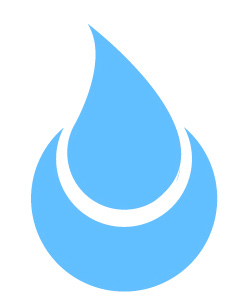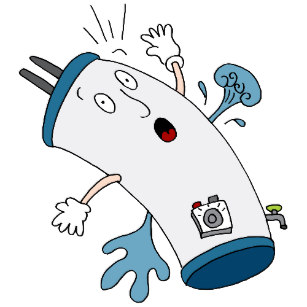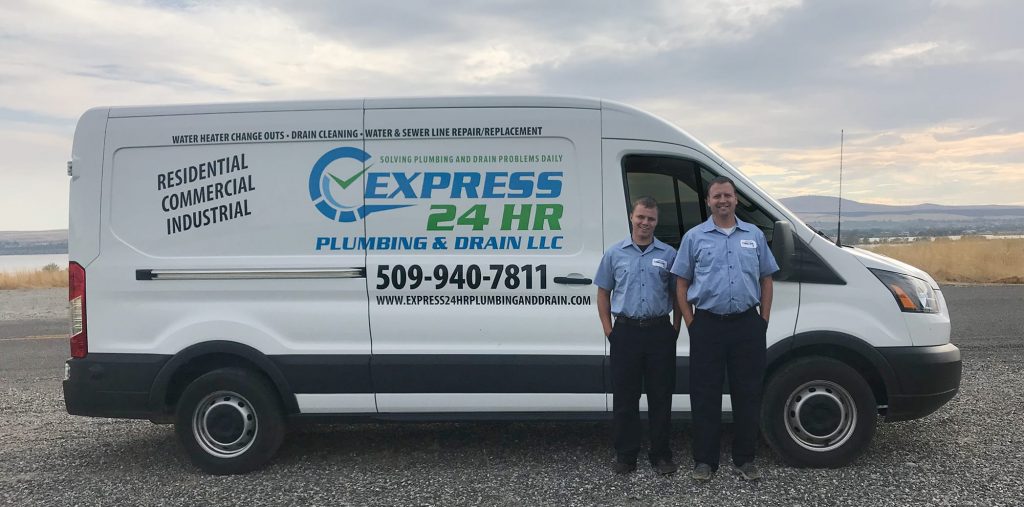Need to Replace Your Water Heater?
We are a full service water heater repair and replacement company.
Our licensed and insured plumbers can fix or install tankless hot water heaters, AO Smith hot water heaters, electric hot water heaters – whatever you have, we’ll make sure it’s set up right and working properly.
What’s going on with my Water Heater?
Check out the most common issues to determine if a water heater repair or replacement is right for you.
Not Enough Hot Water Available
If you’re running out of hot water too quickly, there are a couple things to check. First, take a peek at your water heater’s thermostat. It could be as simple as adjusting the thermostat heat so the water gets hotter. If you’ve had issues with hot water supply for as long as you’ve had the heater, your water heater’s tank might not be big enough to supply all the hot water your family needs.
It’s also possible that your tank is leaking or that the dip tube, which supplies cold water to the tank, may be broken or cracked. The heating element, burner (in a gas unit), or wiring (in an electric unit) could also be malfunctioning. Professionals can fix all of these problems.
The Water is Too Hot
If your hot water is too hot, the problem is probably with your heater’s thermostat. Check to see if it’s turned too high. If it isn’t, it could be malfunctioning. Mark its current position and then turn it to a cooler setting. Wait a few hours. If the water is still as hot as it was before you turned the temperature down, it’s because the thermostat isn’t working.
If the water coming out of your faucets is way too hot or it steams, it’s possible that the water heater isn’t shutting off at the temperature it’s supposed to. This is could be because the temperature-pressure (TP) relief valve is malfunctioning. This can be easily replaced by the pros.
Water Takes Too Long to Reheat
If your water takes a long time to heat up after the tank is emptied, it could be because your heating element is struggling. This might be because the heating element itself needs to be replaced or because the power supply isn’t reaching the element.
Slow-heating water could also be the sign of a more serious problem, however. If sediment or rust has built up in your water tank, it could be smothering or insulating the element. This insulation will force the element to work harder to heat the water, causing a pressure and heat build up that could lead to rupture and total failure.
Water is Rust Colored or Smells
If your water is rust-colored or smells and tastes weird, the first step is to determine if the problem is with your heater or your source water. If all your water (cold and hot) or only your cold water is discolored, the problem is your source water. If only the hot water is discolored or smelly, it’s because there’s a high concentration of sulfates or other minerals in your tank. These minerals are “cooked” when the water is heated and release into your water. Sometimes flushing the tank helps.
If the problem persists after a total flush or two, have a pro replace the anode rod in your water heater’s tank. This device acts like a kind of rust “lightning rod.” It keeps your tank from rusting out from the inside by corroding in its place.
Valve or Tank is Leaking
Have you noticed a puddle of water under your water heater or is there water streaming down the side of your tank. Find out what causes water heater leaks and what your options are for a repair or a replacement.
If the valve directly below the tank is leaking, however, you may still have options. Usually, the thing you’ll notice leaking will be the temperature/pressure relief valve. This opens to relieve high pressures and temperatures inside the tank and lets out water in the process. If it’s leaking, then it can’t do its job properly or is opening prematurely. If you notice a problem with your TP valve, call a professional for a diagnosis. The TP valve is often a harbinger for greater problems, so if you call fast, we may be able to save you from a more costly fix.
Tankless Water Heater VS Conventional
Looking to install or replace an existing water heater? We will work with you to determine your needs and recommend a perfect solution based off of those needs. Below are the most important factors to consider between tankless water heaters (heats cold water on demand only as you need it) and conventional water heaters (use gas flame or electric heating element to heat the water) and to help you make an informed decision.
Conventional Water Heaters
- Depending on your local utility costs, gas water heaters are typically less expensive to operate than an electric.
- Easy installation procedure (if replacing existing conventional water heater).
- Can handle a large amount of water usage.
- When you lose power, there is a reserve of hot water for a short time period.
- Generally less expensive than tankless water heaters.
Tankless Water Heaters
- Endless hot water supply
- More energy efficient than conventional hot water tank (by about 50%)
- Require less space in your home
- Instant hot water


